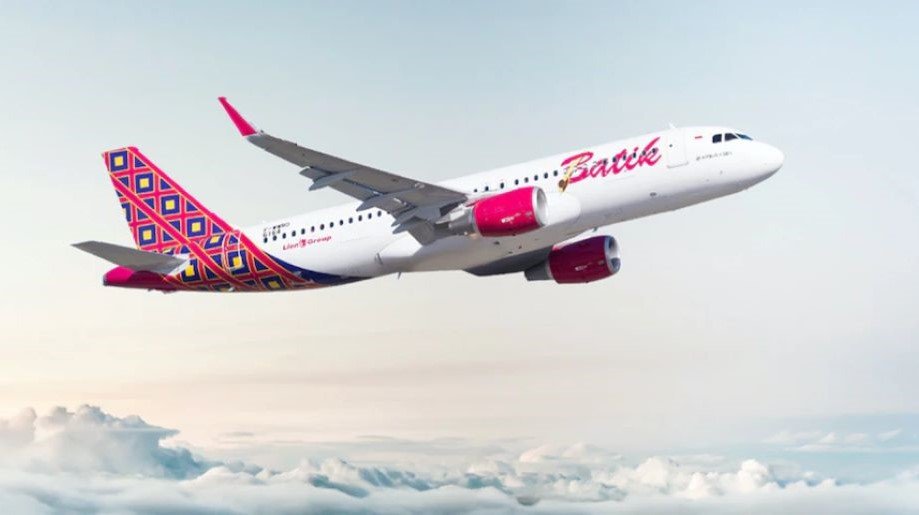Nine months after the onset of the coronavirus pandemic, several countries around the globe have lifted restrictions to foreign travelers and tourists. While some destinations require a mandatory quarantine period upon arrival, in many cases a negative PCR test administered before travel is accepted as a substitute.
We’ve put together a round up of 10 countries open to tourists and don’t require quarantine upon arrival. Read on for a hefty dose of information — and inspiration!
*Remember that while travel is opening up, there’s still a pandemic going on. Many countries are entering the dreaded “second wave” with a dramatic increase in cases. Before confirming a trip, make sure you have appropriate insurance and health coverage in place, and check directly with the airline in the case of last-minute cancellations or delays. It’s also essential that you check with your destination’s local authorities regularly in case the panorama changes. Stay safe, stay healthy, and wear your mask!
1. Brazil
Foreign tourists can enter Brazil by air; they are subject to regular entry requirements and are permitted to stay for up to 90 days. The country has lifted nearly all COVID-related entry rules and regulations, such as specific travel health insurance (though it’s always a smart idea to have this, no matter when you’re abroad). Travelers in transit are permitted to move freely as long as they don’t leave the international airport area, in addition to having a confirmed ticket for onward travel.
From December 30th, all travelers – both residents and tourists – entering Brazil must present a valid negative PCR test for COVID-19 taken 72 hours prior to departure. They will also need to complete a health declaration form, answering a variety of questions and acknowledging compliance with all health and safety measures during their stay.
Government authorities recommend that anyone experiencing coronavirus symptoms to quarantine for 15 days; if you feel sick or are on the fence about traveling, consider erring on the side of caution.
You can get more information from Brazil’s Tourism Ministry or the U.S. Embassy in Brazil.
2. Ecuador
Flights to Ecuador have resumed, and special “travel corridors” have been established for tourists who wish to visit the Galapagos Islands. Foreign travelers that plan to travel to the Galapagos must present a negative PCR test for COVID-19, administered 96 hours before the departure date to Ecuador. Note that upon arrival, another PCR test might be requested and administered at the traveler’s expense in the case of a non-valid prior PCR. Travelers will need to quarantine until a negative test result is received. You will also be expected to fill out a Health Status Declaration as well as provide a local address where you plan to be during your stay.
Tourists are required to present a return flight and “safe passage” document (“salvoconducto”) — issued by the Ministry of Tourism — to gain exemption from 14-day self-isolation on the Galapagos. To obtain this document, check with your hotel and/or tour operator: they are responsible for making these arrangements on your behalf. Don’t forget about the Galapagos Transit Control Card, which must be completed online at least 24 hours before your flight.
The Ecuadorian government provides more details and information at the following website: Coronavirus Ecuador. Additionally the U.S. Embassy in Ecuador has a special coronavirus section on its website.
3. Bolivia
Tourists entering Bolivia must present a negative PCR test result for COVID-19, issued within seven days prior to their arrival and certified by a Bolivian consulate. If a tourist cannot produce a valid medical certificate, they will be subject to quarantine.
More information and updates can be found at the Bolivian government’s website or the U.S. Embassy in Bolivia‘s website.
4. Panamá
Panama’s borders are open to commercial flights, and travelers must present a negative PCR test result for COVID-19, administered within 48 hours of departure, and complete a special health declaration (“Declaración Jurada de Salud“) upon entry. If a tourist does not have a valid negative PCR test result, they will be administered one at the airport. The cost is US $50; travelers are responsible for covering this expense. In the case of a positive result, the traveler will be required to quarantine at a government-sponsored facility for seven days; following another PCR, if the result is negative they will be allowed to leave. Otherwise, the traveler must complete another seven days of quarantine.
Travelers in transit are permitted to do so in Panama. They must be able to present a confirmed onward flight and will not be allowed to leave the airport. Additionally, they will be given a PCR test and must receive a negative result in order to fly.
More information is available on Panama’s Health Ministry Twitter account or on the U.S. Embassy in Panama website.
5. Mexico
There are currently no restrictions on entry by air to Mexico, but if a traveler is arriving from a country affected by COVID-19, they might be subject to extra screening and/or quarantine if deemed necessary. Upon arrival, tourists must present a completed “Risk Factor Identification” questionnaire (“Cuestionario de identificación de factores de riesgo en viajeros“) to immigration authorities.
Each state in Mexico applies different measures and additional restrictions, so it’s best to double-check with local authorities before and during your trip to stay on top of the situation.
Note that the land border between the U.S. and Mexico remains closed to non-essential traffic; this measure is reviewed and re-evaluated on a monthly basis.
For more details and information, consult the U.S. Embassy in Mexico website.
6. Colombia
Travelers who wish to visit Colombia must complete the required Check-Mig form. A negative PCR test for COVID-19 is no longer required to enter the country by air. However, tourists must comply with all follow-up health checks carried out through the CoronAPP mobile app.
Check with the U.S. Embassy in Colombia for more updates and details.
7. Dominican Republic
Travelers wishing to enter the Dominican Republic will no longer be required to present a negative PCR or other COVID-19 test. However, airport authorities will carry out rapid and random breath tests to between 3-10% of passengers — as well as all of those that present symptoms — upon arrival. All travelers will be subject to temperature checks. Additionally, they will be required to submit a Traveler’s Health Affidavit form, upon which they declare that they have not experienced any coronavirus symptoms in the last 72 hours. They will also provide contact details for the following 30 days.
Any traveler that presents symptoms or receives a positive test result must isolate at an authorized location.
Check the U.S. Embassy in the Dominican Republic website for more information.
8. Jamaica
Though the country has opened its international borders, any traveler arriving to Jamaica might be tested for COVID-19 if authorities determine that they are high-risk; depending on their assigned category (see below), they might be subject to quarantine.
Before departure, travelers that do not reside in Jamaica must present a website before departure.
Residents of the United States, Brazil, Dominican Republic, Mexico, and Panama who are 12 years in age or older must present a negative PCR or antigen test result, issued within 10 days prior to their departure.
All travelers arriving to Jamaica are subject to the following requirements:
- Category 1: Jamaican nationals and non-nationals ordinarily resident in Jamaica. They may be subject to testing if assessed as high-risk and are required to remain in quarantine at home for 14 days from their date of entry to the country.
- Category 2: Non-resident tourists visiting Jamaica and staying at authorized “resilient corridor” accommodation. They may be tested at the airport or a designated facility, and must await test results in their hotel rooms. If the test is negative, they would remain at their hotel or resort within the “resilient corridor” and restricted to property under the “Stay in Resilient Corridor” measure. Further details can be found on the website.
- Category 3: Non-residents visiting Jamaica for business. All residents of the United States, Brazil, Dominican Republic, Mexico, and Panama traveling to Jamaica for business are required to upload a negative PCR test in order to obtain a Travel Authorization. The test should be conducted within 10 days of the intended travel date. Business travelers will also be tested on arrival in Jamaica and will wait for test results under a website measure at their hotel or otherwise intended address. If the test is negative, they would be released from quarantine and remain under a website measure for a period of 14 days from their date of entry (or for the duration of their stay if shorter than 14 days).
- Category 4: Non-residents visiting Jamaica for other purposes, including tourists not staying within the “resilient corridor.” Travelers who are not required to pre-test may be required to be tested at the airport or other designated facility, if health authorities assess them as high-risk. They will then wait for their test results under quarantine at their hotel or intended address. Whether they need to be tested or not, travelers need to remain in quarantine at home for 14 days from the date of entry to Jamaica. If travelers needed to be tested and the test is negative, they must remain in quarantine at home for 14 days from the date of entry.
Travelers that test positive for COVID-19 will be isolated, either at home or in a government facility, as determined by the health authorities.
Consult with the website for more details and information.
9. Belize
Travelers visiting Belize must have booked a stay at a hotel that has been granted the Tourism Gold Standard Certificate of Recognition. Additionally, they must download the website, fill out the required information, and take a PCR test for COVID-19 within 72 hours of travel. The app generates a unique QR code for contact tracing purposes while they are in the country.
Presenting a negative PCR test result allows travelers to use the “fast track” entry lane for expedited arrival processing. If a travel does not have a negative test result, they will be required to undergo testing managed by the Ministry of Health at their own expense upon arrival. In the case of a positive test result, the traveler will be quarantined at their hotel until given clearance by health authorities.
Note that all travelers in Belize must wear a face mask at all times.
You can get more information at the website or website website.
10. South Africa
Travelers visiting South Africa are required to present a negative PCR test result for COVID-19 (taken within 72 hours prior to departure) in addition to providing proof of accommodation. They are also subject to medical screening upon arrival to the country and must have secured travel insurance with international coverage for COVID-19 prior to travel.
Symptomatic travelers – or those that have been in contact with an infected person – will be subject to a mandatory COVID test at their own expense. If the result is positive, they will be subject to a ten-day quarantine at a government-authorized facility (also at their own expense). Travelers that do not possess a valid medical certificate with a negative PCR result will also be subject to the same requirements.
While commercial flights have resumed, international air travel is limited to the OR Tambo International, King Shaka International, and Cape Town International airports.











